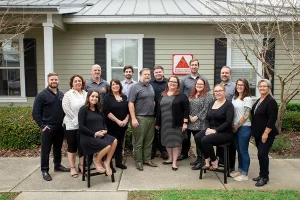Even Millionaires Worry About Being Able to Retire Comfortably: Natixis

What You Need to Know
Among U.S. investors with at least $1 million in investable assets, 44% are worried about being able to retire when they want to.
Applying the 4% rule to a million-dollar portfolio provides less income than most respondents are used to living on, Natixis says.
Inflation, rising interest rates and increasing health care costs are all weighing on future financial security.
This year is proving to be a tough one for those contemplating retirement, including many well-off individuals.
U.S. investors with $1 million in investable assets are preoccupied with their eventual ability to retire comfortably, according to survey data released Tuesday by Natixis Investment Managers.
CoreData Research conducted the survey in March and April 2021 among 8,550 respondents in 24 countries, including 1,617 individuals with at least $1 million in investable assets. These high-net-worth investors had a median $2 million in assets, including a median $650,000 in retirement savings.
Even though high-net-worth respondents plan to leave work at the relatively early age of 63, 58% of them acknowledged that they may have to stay on the job longer than they planned.
But that may not be so easy. Forty-four percent of these investors are worried that they may not be able to do so. Thirty-five percent of millionaires said “it will take a miracle” to achieve a secure retirement, while 42% said they are so worried about retirement security they avoid thinking about it all together.
Rising Costs, Low Returns
In addition to inflation concerns, rising interest rates pose a growing problem for both retirees and savers.
“A decade of historically low rates impeded investors’ ability to annuitize assets, leaving many retirees with a less-than-ideal income,” Liana Magner, Natixis’ head of retirement and institutional in the U.S., said in a statement. “It’s true that the overall level is still low from a historical perspective, but rates are now rising on higher government debt. Together with persistent fears of a global recession, we’re seeing new risks emerge.”
People who hope to retire need education, planning, tools and policy to meet the retirement crisis, Magner said.
Magner also pointed out that although inflation and low rates could soften, rising health care costs are affecting those already living in retirement. Sixty-five percent of those surveyed said health care costs and long-term care costs, such as nursing care, will have a big effect on their financial security in retirement.



